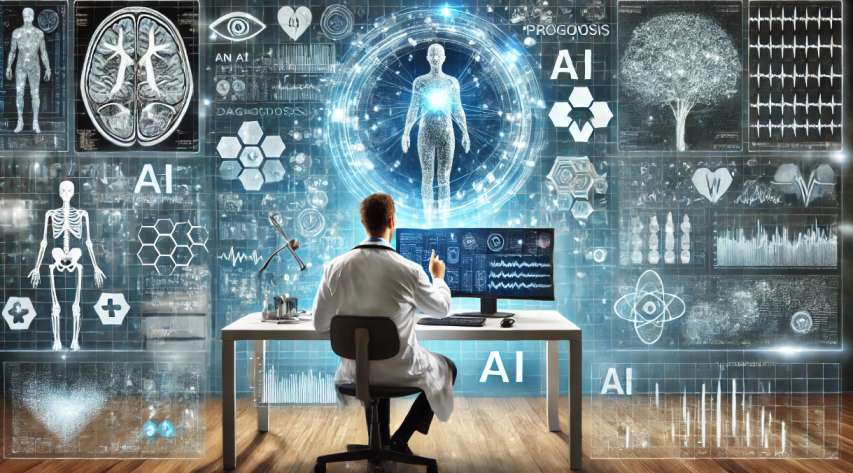
Artificial intelligence (AI) is revolutionizing industries worldwide, and healthcare is no exception. As medical data becomes more complex and abundant, the ability of doctors to process and analyze it all in a timely manner is becoming increasingly difficult. Enter AI—an intelligent tool that can process vast amounts of information, identify patterns, and deliver actionable insights faster and with greater accuracy than any human could. But why exactly is AI poised to be the future of medical prognosis? In this article, we’ll explore the key reasons why AI is set to transform the way medical professionals approach diagnosis and treatment planning.
Data Overload in Medicine
Every day, millions of data points are generated in healthcare, from patient records to clinical studies, diagnostic images, lab tests, and more. Doctors are expected to sift through this sea of information to provide accurate diagnoses and prognoses, but human limitations mean that some valuable insights may be overlooked. AI changes the game by making sense of this data at scale. Nexarm, for instance, uses AI to extract meaningful insights from structured and unstructured data, ensuring no critical information is missed. This level of analysis can be completed within seconds, providing doctors with timely, actionable information that aids in prognosis.
Improving Diagnostic Accuracy
One of the biggest challenges in healthcare is diagnostic errors. Misdiagnoses can lead to ineffective treatments, prolonged patient suffering, and even fatalities. Nexarm’s AI-powered solution helps mitigate this risk by analyzing patient data in a way that humans simply cannot. By identifying patterns and trends across massive datasets, the AI can detect signs of diseases early on, sometimes even before symptoms fully manifest. It can also cross-reference a patient’s current condition with similar cases, offering suggested diagnoses or prognoses based on historical data. This significantly enhances the accuracy of medical decisions.
Enhancing Personalized Medicine
Every patient is unique, and personalized medicine—tailoring treatment based on an individual’s specific characteristics, such as genetics, lifestyle, and environment—is becoming the gold standard in care. AI is particularly well-suited to support personalized medicine because it can quickly analyze data from diverse sources and pinpoint what’s most relevant for each patient. Nexarm enables doctors to consider genetic data, previous medical history, and even socio-economic factors when making prognoses, ensuring that treatments are personalized for the best possible outcomes.
The Role of AI in Predictive Analytics
One of AI’s most exciting applications in healthcare is predictive analytics. Predictive analytics uses historical data to forecast future events—in this case, disease progression. Nexarm’s AI-driven tools allow medical professionals to predict how a patient’s condition will evolve, enabling them to take proactive measures before complications arise. This means earlier interventions, better management of chronic diseases, and, ultimately, improved patient outcomes. For example, a patient with early-stage diabetes might be identified as high-risk for cardiovascular disease based on their data, prompting their doctor to start preventive care sooner.
Conclusion: AI is the Future, and the Future is Now
The integration of AI into medical prognosis is not just a distant dream; it is happening now. Nexarm is at the forefront of this revolution, providing medical practitioners with the tools they need to deliver faster, more accurate, and personalized prognoses. As healthcare becomes increasingly data-driven, AI solutions like Nexarm will become indispensable in ensuring quality care for all. The future of healthcare is smarter, faster, and more precise—and AI is the driving force behind it.
